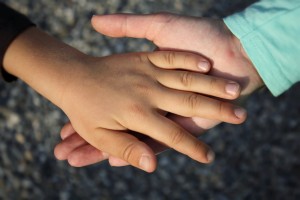
Contributor: Crystal Karges, MS, RDN, IBCLC Special Projects Coordinator at Eating Disorder Hope/Addiction Hope
Dealing with a sexual addiction in itself can be overwhelming and challenging, as the consequences associated with this intimacy disorder can be devastating.
Because this intimacy disorder has many behaviors that are characteristic of other addictions, it is not uncommon for other types of mental disorders to occur alongside sexual addiction.
For example, a person dealing with sexual addiction who commonly exhibits obsessive and compulsive behaviors, may also display similar patterns in other aspects, such as with substances and food.
An individual who is struggling with sexual addiction may have other underlying mental illnesses, such as:
- Addiction to drugs
- Addiction to alcohol
- Eating disorder
- Anorexia nervosa
- Bulimia nervosa
- Binge eating disorder
Other types of mental disorders that can be present alongside sexual addiction include:
- Mood disorders
- Personality disorders
- Anxiety
- Depression
- Post-traumatic stress disorder
- Borderline personality disorder
Identifying Co-occurring Issues
Identifying and address any other mental illness that may be co-occurring with sexual addiction is essential for improving the effectiveness of treatment. Intimacy disorders, such as sexual addiction, and mental illnesses, may have similar underlying factors that can be adequately addressed through professional treatment.
 For example, if a person has be the victim of a traumatic event, this is something that should be dealt with in treatment. Other mental disorders could also be the underlying factor that influences sexual addiction as well.
For example, if a person has be the victim of a traumatic event, this is something that should be dealt with in treatment. Other mental disorders could also be the underlying factor that influences sexual addiction as well.
For example, if a person with a sexual addiction is attempting to cope with anxiety or depression that has been undiagnosed, this can complicate treatment.
Being aware of co-occurring disorders can help a person more effectively and holistically treat the present issues.
If you or someone you love has been dealing with a sexual addiction and possible other mental illnesses, be sure to discuss this with your treatment professional.
Seeking out professional help is the most effective way of managing co-occurring disorders, and this should be approached with a team that works together collaboratively. Sexual addiction and co-occurring disorders can be overcome with help, treatment, and dedication to the recovery process.
Community Discussion – Share your thoughts here!
Are you a treatment professional who specializes in sexual addiction recovery? If so, what are some of the co-occurring disorders you have seen alongside sexual addiction?
Crystal is a Masters-level Registered Dietitian Nutritionist (RDN) with a specialty focus in eating disorders, maternal/child health and wellness, and intuitive eating. Combining clinical experience with a love of social media and writing, Crystal serves as the Special Projects Coordinator for Eating Disorder Hope/Addiction Hope, where her passion to help others find recovery and healing is integrated into each part of her work.
As a Certified Intuitive Eating Counselor, Crystal has dedicated her career to helping others establish a healthy relationship with food and body through her work with EDH/AH and nutrition private practice.
The opinions and views of our guest contributors are shared to provide a broad perspective of addictions. These are not necessarily the views of Addiction Hope, but an effort to offer discussion of various issues by different concerned individuals.
We at Addiction Hope understand that addictions result from a combination of environmental and genetic factors. If you or a loved one are suffering from an addiction, please know that there is hope for you, and seek immediate professional help.
Last Updated & Reviewed By: Jacquelyn Ekern, MS, LPC on November 17, 2015
Published on AddictionHope.com
